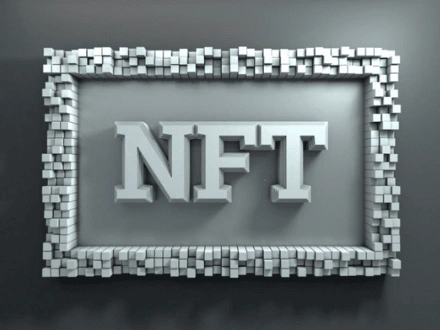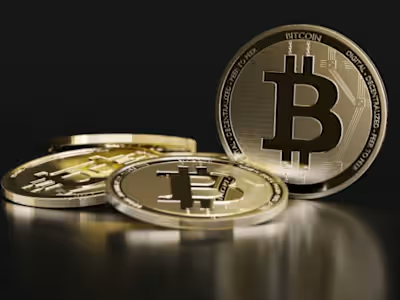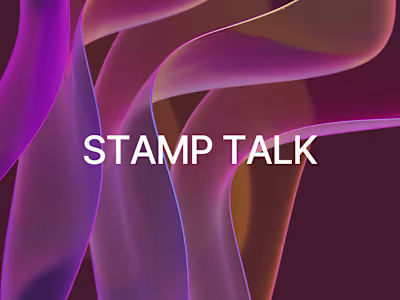DEEP DIVING INTO NFT GAMING
What exactly are NFTs?
A Non-Fungible Token is a digital token based on the blockchain representing a one-of-a-kind item. There are a variety of applications for an NFT. It might be a
game's digital currency, a collectible piece of crypto art, or even a physical
item like real estate. In a "copy-paste" world, NFTs have solved the
long-standing problem of creating decentralized digital collectibility and
ownership.
NFT GAMES
The "play-to-earn" feature is introduced in NFT games,
which are online games. While maintaining some of the most popular
characteristics of traditional games, what sets an NFT game apart is that it
enables players to earn a significant amount of money while spending.
Players can equip in-game characters and sell them to other
players in NFT games like Axie Infinity and Gods Unchained. According to
several sources, many people are already attracted to this aspect of NFT games,
and some have resigned their jobs to focus on playing and earning at the same
time. In a nutshell, NFT games are a mix of enjoyment and profit potential.
Some of the Most Popular NFT Games
Specific platforms have emerged as the main highlight of the NFT
gaming world, as they have in all new and established sectors. Because they've
effectively blended NFTs with popular game themes, these games are at the
forefront of the current NFT craze. As a result, players can participate in a
rich NFT market while playing their favorite game genres. Examples of such
games are:
·Axie Infinity
·Gods Unchained
·Splinterlands
What Are In-Game Nfts?
While playing NFT games, in-game NFTs are an additional way to
make money. You acquire NFTs, which are collectible objects, rather than
fungible ERC-20 tokens like SLP in Axie Infinity or SKILLS in CryptoBlades. The
value of items will vary depending on their cosmetics, rarity, or utility in
the game. This gameplay method is how NFT games have traditionally generated
revenue.
In-game NFTs have been revolutionizing the gaming industry since
their launch in late 2021, and they show no signs of stopping off anytime soon.
Traditionally, gamers have spent hundreds of dollars on
cosmetics and add-ons for video games. On the other hand, these things have no
method of being resold on the open market and offer no meaningful benefit
beyond aesthetics and potential in-game advantages.
Most blockchain games incorporate NFT and crypto tokens in some
way. Players are granted ownership of their in-game items through a
play-to-earn system rather than a pay-to-consume experience.
With an extensive collection of high-quality gaming drops and
the first-ever Initial Game Offering (IGO) platform for budding NFT gaming
projects, Binance NFT is one of the pioneers of Play-to-Earn gaming.
The Future of In-Game NFTs
Games featuring in-game NFT components, once an obscure virtual asset
known only to tech geeks are on their road to the mainstream as video and
mobile game firms jump on board the NFT bandwagon.
NFTs have impacted the business with their unique perks, with
popular games like Mobile Legends dipping their toes into NFTs and titles like
Axie Infinity merging into the metaverse. In-game NFTs have a wide range of
applications that allow users to use them as characters, commodities, unique
skills, tradable objects in games, and, most importantly, as a source of
additional revenue.
Binance NFT is an easy-to-navigate marketplace with a wide
choice of top NFT offers if you want to go further into the world of NFTs.
What Are Play-to-Earn Games and How Do They Work?
Users can manipulate in-game assets such as skins, characters, weapons, virtual territories, and much more in an NFT game, mixing traditional gaming ideas with innovative game dynamics. Launching games on blockchains and connecting them with digital asset-powered economies makes this viable. NFTs are frequently used for these digital assets because they are unique and tamper-proof. The use of NFT token standards also allows game designers to keep some of these in-game items rare and unique. As a result, certain blockchain
gaming assets are valued higher than others.
Players can lay claim of game assets using three primary strategies with this system in place. They could build or breed new characters, purchase digital products on in-game or third party marketplaces, or earn and unlock new items. These game assets are yours to keep exclusively. With this mechanism in place, players can claim ownership of game assets using three basic tactics.
They could create or breed new characters, buy digital products
on native or third-party marketplaces, or earn and unlock additional items. Regardless of how you access these game assets, you have exclusive ownership rights to them. You may essentially distribute or sell them and keep all of the profits. This is why the play-to-earn gaming concept is so popular. of how you access them. You may essentially distribute or sell them and keep all of the profits. This is why the play-to-earn gaming concept is so popular.
How do NFT games work?
Holding crypto-collectibles in your wallet isn't the same as playing NFT games. Rules, procedures, and player interactions will use NFTs in an NFT game. A game could, for example, use an NFT to represent your individual character or avatar. NFTs can also be found as digital objects while playing the game. After that, you can swap or trade your NFTs for a profit with other players. NFT games can also earn money using a modern, play-to-earn approach.
So, how do you technically include NFTs in a game environment? Developers build smart contracts that set the rules for the NFTs used in a game to exchange, produce, and implement them. On a blockchain, smart contracts are self-executing pieces of code.
CryptoKitties, for example, is structured by a small number of
core contracts. Their gene science contract is the most well-known, as it
governs the random mechanics that generate new cats. Initially, the game's code
was kept under wraps. Players who were interested even devised algorithms to
calculate the chances of specific cat features showing up. Players could use
this information to improve their chances of creating a valuable rare breed.
How Do NFT Games Make Money?
The amount of money you can make from playing an NFT game is determined by the game's mechanics as well as market demand. Other players will pay you money for the NFTs or cryptocurrencies you earn in the game. You will need to sell your products on a market, exchange, or auction house to make a profit. In NFT games, value is derived from the NFT or token's collectability or in-game utility. Both of these aspects attract inquiry.
Can I Lose Money Playing NFT Games?
Playing NFT games may lead to financial loss. The exact quantity is determined by the type of game you're playing, the mechanics of the game, and the worth of the NFTs you are dealing with. Losing money does not always imply that you are being conned. Because NFTs are uncertain and market forces determine their value, your losses are likewise determined by market forces. Like any other cryptocurrency investment, only invest what you can afford to lose.
Can I Lose My Nfts?
Whether you purchased your NFTs or earned them in-game, you must ensure that they are kept safe. Because of the high value of some NFTs, it's usual to be concerned about losing them when playing a game or interacting with the blockchain. In summary, if you're not careful, you could lose your NFTs.
There are several ways you could lose your NFT:
You try to send it from one wallet to another that doesn't recognize your NFT
token standard.
You have been a victim of a scam or fraud, and you've sent your NFT to a con artist.
You grant malicious smart contracts access to your wallet, and they steal your
NFT.
As part of the game's regulations, you lose it.
You wouldn't use PayPal or internet banking unless you knew how to use it properly, and the same is true with NFTs. With the exception of the last, you can avoid the instances described above by improving your understanding of NFTS, blockchain technology, and scams in general. If you don't want to lose your NFTs, you should:
Confirm that you are not falling for a scam if you transfer your NFT to another
wallet.
Learn about the various types of tokens and blockchains that your wallet or
platform can support. The most popular NFT token protocols for Ethereum
are ERC-721 and ERC-1155, while the most popular for Binance Smart Chain
are BEP-721 and BEP-1155 (BSC). Always double-check that you're sending
them to the correct place, and never assume that they'll get along.
You should only engage with smart contracts from trusted projects. If you
allow a smart contract to connect with your wallet, you should know that
the contract may take your funds.
Familiarize yourself with the game in order to avoid any unpleasant situations. Make
sure you understand the rules of the game you're playing. You can trade
with other players or utilize NFT consumables in some NFT games. For
example, these could be objects or potions.
(IF YOU WANT MORE CONTENT LIKE THIS, CONTACT ME AND LET'S GET STARTED)

Like this project
Posted Apr 9, 2022
Crafted a well written article on some basic information about NFTs.
Likes
0
Views
22







